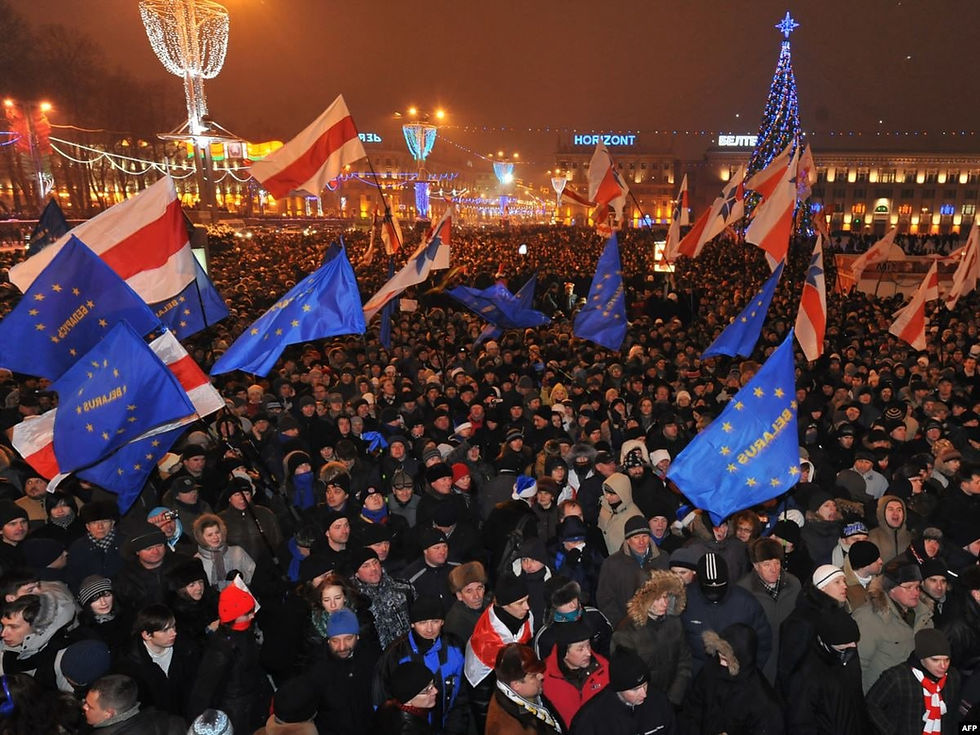July 3 - the day of struggle against the independence of Belarus?
- Belarusian Сommunications
- Jul 4, 2024
- 3 min read
Official Minsk celebrates today, July 3, the official Independence Day of Belarus. But to what extent does this date correspond to historical reality?
In fact, this date is just part of Lukashenka's general efforts to wipe Belarusians' national self-awareness from their memory and return to Soviet "scraps".

In 1992-1996, Independence Day in Belarus was officially celebrated on July 27 - on this day in 1990, the Verkhovna Rada of the BRSR approved the Declaration on State Sovereignty. The document established the priority of Belarusian laws over the Union laws, and the territory of the state was declared indivisible and inviolable. After that, Belarus managed to return the state symbols - the white-red-white flag and the "Pagonya" coat of arms, and the final point in the history of the Union was set by the events of December 1991 and the signing of the Białowieża Agreements. It was July 27 that was adopted by the Verkhovna Rada as a national holiday, Independence Day.
But after winning the presidential elections in 1996, Oleksandr Lukashenko took a course to return to the Soviets. He initiated the Republican Referendum, which took place on November 24, 1996 and essentially determined the entire future authoritarian development vector of Belarus.
The results of the referendum were not recognized either by the Presidium of the Supreme Council of Belarus, or by the majority of Western countries and international organizations - in particular, the OSCE and the Council of Europe. In fact, it was a coup d'état, since issues related to the amendment of the Constitution could only be decided by the country's parliament, however, contrary to the law, they were submitted to a plebiscite.
Actually, one of the issues of that referendum, for which post-Soviet Belarusians voted, was the postponement of Independence Day to July 3. In fact, this is the date of the liberation of Minsk from the fascist invaders during the Bagration operation in 1944. This day was previously celebrated in Minsk as City Day. It would seem that the acquisition of sovereignty and the liberation of territories from the Nazis is to find a real historical connection. But Lukashenka is not used to completely distorting meanings. Most likely, he, like Putin, saw separation from the USSR not as a holiday, but as "the greatest tragedy."
The postponement of the celebration was another link of Lukashenka on the path of supplanting the Belarusian identity. Before that, the state symbols - the hated white-red-white flag and the coat of arms "Pagonya" - were replaced by somewhat modernized symbols of the BRSR, the Russian language was given the status of the state, the holiday "Day of the State Flag, State Emblem and National Anthem" appeared. which was intended to cement Soviet meanings in the mass consciousness.
At that time, it was not difficult for Belarusians to give up the date of July 27 - for many, it did not have time to acquire an emotional meaning and rather, on the contrary, it was associated with a crisis. And for nationally conscious Belarusians, July 27 "competed" with Freedom Day (March 25, the day of the declaration of independence of the Belarusian People's Republic in 1918), which conscious Belarusians considered more significant and important. This date and the truth is also very important for the national historical context.
In addition to Freedom Day, other dates appear among the public that could be "designated" as Independence Day - the declaration of independence of Belarus on August 25, 1991, the renaming of the BRSR to the Republic of Belarus on September 19, 1991, or the anniversary of the victory of the Ukrainian Armed Forces over the Russian army on September 8 1514 year. However, these dates are currently being discussed only among a narrow circle of experts, historians, and activists, while most people do not remember them.
However, we believe that Belarus received real, modern independence on July 27, finally breaking away from the Soviet shackles. More precisely, I should have received it. If another dictator did not stand in the way




Comments